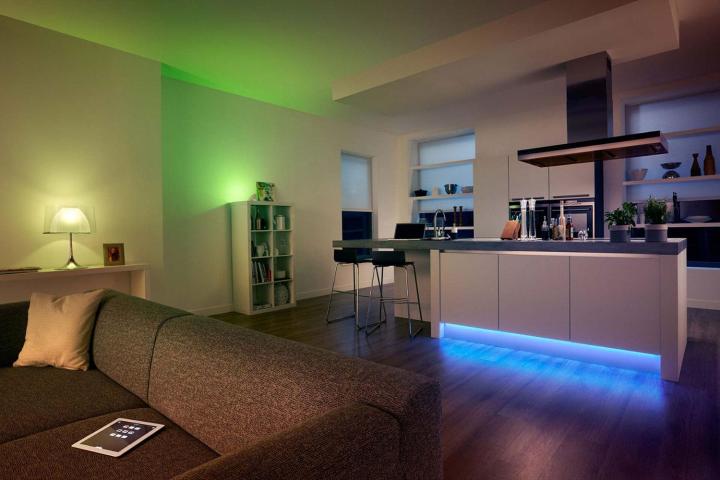
In a rather alarming move for fans of Philips Hue, the company has revealed it will block all third-party LED light bulbs from the Hue Bridge in the firmware 1.11 update.
Philips claims these third-party options are causing too many compatibility and setup problems. Third parties now have to send products to Friends of Hue, a program designed by Philips, which verifies third-party products that want to connect with the Hue bridge. That is on top of sending products to ZigBee LightLink, an electronic alliance that verifies all sorts of products and offers a protocol for connected devices.
The Hue bridge is where all of the smart light bulbs connect, via a single Wi-Fi bridge. From there, the user can manipulate the colors and add programs to change the colors across 50 light bulbs — enough for an entire house of lights.
The decision is being received as a shocking move, and has sparked a massive backlash from the community. Customers are calling for Philips to change the policy, and some are even contemplating a move away from the company’s products to a neutral bridge provider. Others are not as bothered about the move, but want Philips to warn about third-party light bulbs that haven’t been tested, instead of blocking them.
In the past year, Philips has become the dominant provider of LED lights and solutions, which might be the reason for the sudden move to cut off the competition. The smart home provider claims that the new ban on third-party light bulbs will effect a small minority of customers, but GE, Cree, and Osram customers are all in the dark for now on future compatibility.
Philips is not the first company to try to impose a blockade on third-party products. Apple’s third-party accessories for HomeKit are all vetted, as are smart products that use the Works with Nest API. Unlike those firms, however, Philips didn’t start with a closed network in mind, and imposing new restrictions on Hue Bridge after becoming popular is a much more complicated matter than beginning with a closed network in the first place.


